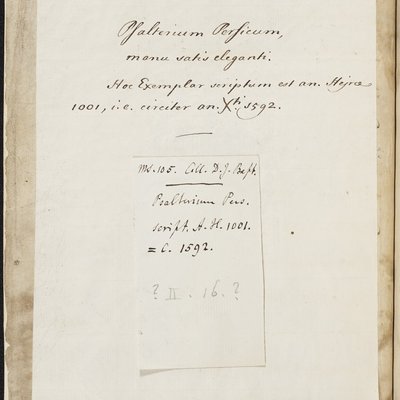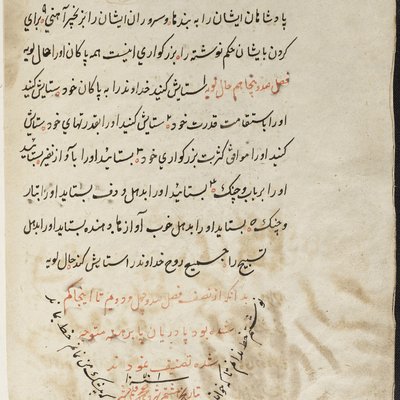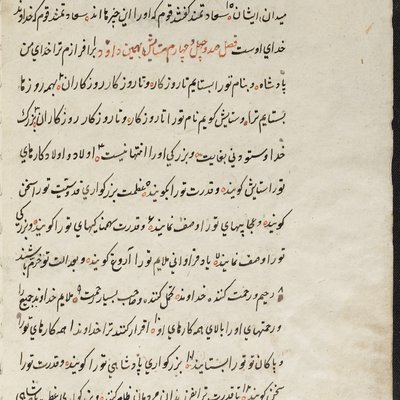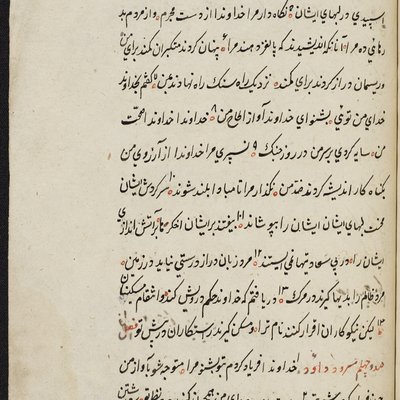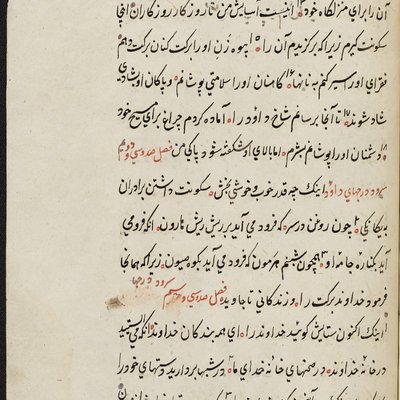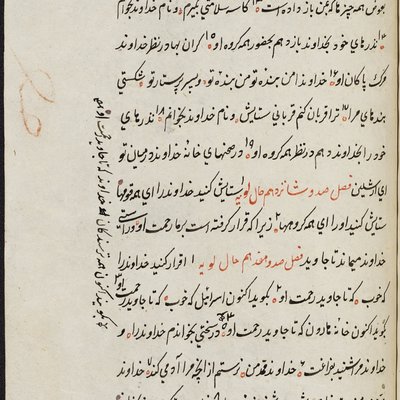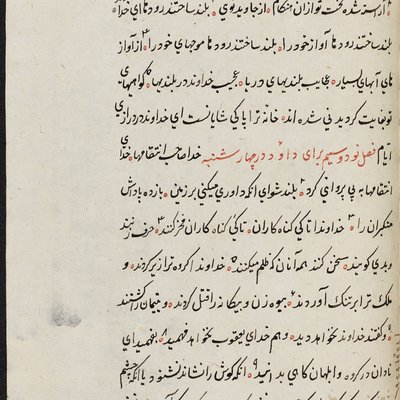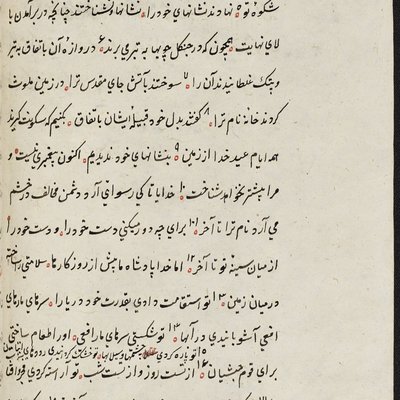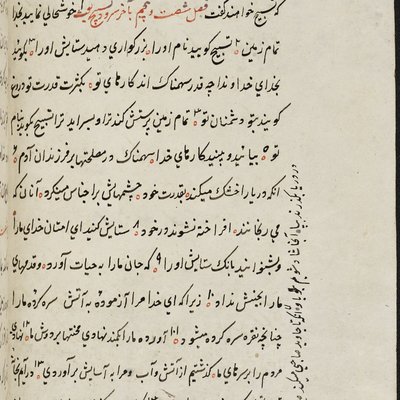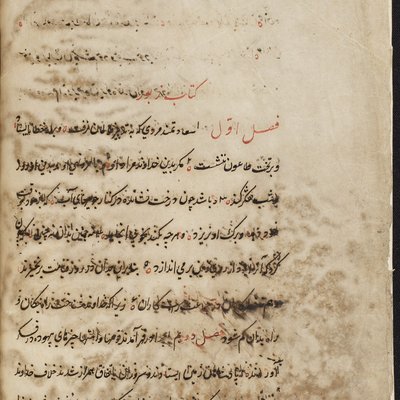May 2023
This month we introduce a manuscript newly added to Digital Bodleian as part of our digitization project: an early modern translation of the Book of Psalms into the Persian language (https://digital.bodleian.ox.ac.uk/objects/aac8852f-5522-4dbc-a859-e9ebd21972a8/).
One of the earliest Persian translations of the Bible is the so-called Pahlavi Psalter, a Middle Persian translation of a Syriac version of Psalms 94-99 and 119-136 discovered in Western China (Thomas & Vahman; Wikipedia, ‘Pahlavi Psalter’). It has been dated to the 5th or 6th century. Further translations into Persian of various books of the Bible, both Old and New Testament, from a variety of languages, including the original Hebrew and Greek, were made throughout the centuries (Thomas & Vahman).
St John’s MS 105 dates from 1661 (rather than 1592 as stated in a modern note on fol. iva) and has been described by Savage-Smith in the context of other 17th-century Persian translations of the Psalms. Scholars know of two such translations. The arguably more renowned one was made around 1618 by the Portuguese Carmelite monk John Thaddeus (Padre Juan) from the original Hebrew with the help of three Muslim mullahs and one Jewish rabbi at the behest of the Shah of Iran (Savage-Smith, p. 92). During the reign of Shah Abbās I (1571-1629), Iran was brought out of political and economic isolation. Among other measured the trade was revived and Iran was made attractive for foreigners with religious freedom for non-Muslims (Thomas & Aghbar, pp. 112-114). As a result, several Catholic orders settled in the country, including the Carmelite order lead by John Thaddeus, who established a good rapport with Abbās I (Thomas & Aghbar, pp. 123-127). Alas, the translation in St John’s MS 105 differs from Thaddeus’s translation, which has survived in several manuscripts, three of which are now in the Bodleian Libraries.
One of the unresolved questions is whether our manuscript contains the other known 17th-century Persian translation, which was made from the Latin Vulgate by the Spanish Jesuit Jeronimo Xavier (1549-1617) while he was a missionary to the Islamic South Asian Mughal court under Akbar I and his son Janhāngīr (Savage-Smith, pp. 92-3; Wikipedia, ‘Jeronimo Xavier’). Unfortunately, there are no identified copies of Xavier’s translation. Scholars thus only ‘know of’ this translation that predates Thaddeus’s by at least a year.
Interestingly, the translation in our MS 105 also appears in St John’s MS 133. MS 133 is undated and unsigned, but based on codicological observations Savage-Smith (p. 96) dates it to the ‘16th to 17th century’. Moreover, this translation also appears in two Bodleian manuscripts. One of these previously belonged to Archbishop William Laud (MS Laud Or. 141). The date of 1640 in his ownership statement provides us with the terminus ante quem for the translation, i.e. the latest date by which it must have been completed. This makes St John’s MS 105 from 1661 a later copy of that particular translation. The Bodleian’s other manuscript (MS S. Clarke 10) is an incomplete transcription (possibly of Laud’s manuscript) by Samuel Clarke (d. 1669) (Savage-Smith, p. 92). The translation in these manuscripts could thus have been made earlier than Thaddeus’s translation, which would chronologically fit with Xavier’s translation. By itself, this does not mean much, but a linguistic analysis in connection to its Vulgate source text may perhaps shed some light on the question whether this translation may be Xavier’s or a 17th-century copy of a hitherto unidentified Persian translation of the Psalms also made in the 17th century or earlier.
Library digitization projects which can address a global audience of scholars will hopefully contribute to identifying hitherto unidentified texts or even to declaring texts previously assumed lost as found. If this will be the case for our manuscript 105 remains to be seen.
References:
Savage-Smith, Emilie, A Descriptive Catalogue of Oriental Manuscripts at St John’s College Oxford (Oxford: Oxford University Press, 2005)
Thomas, Kenneth J., and Ali-Asghar Aghbar, A Restless Search: A History of Persian Translations of the Bible, Society of Biblical Literature, 2015. JSTOR, https://doi.org/10.2307/j.ctt19jcg9n [accessed 15 May 2023]
Thomas, Kenneth J., and Fereydun Vahman, ‘BIBLE iii. Chronology of Selected Persian Translations of Parts or the Whole of the Bible’, Encyclopaedia Iranica, IV/2 (2012), pp. 203-206, available online at http://www.iranicaonline.org/articles/bible-iii [accessed on 15 May 2023]
Wikipedia contributors, ‘Jerome Xavier’, Wikipedia: The Free Encyclopedia (16 March 2022), available online at https://en.wikipedia.org/w/index.php?title=Jerome_Xavier&oldid=1077439306 [accessed 15 May 2023]
Wikipedia contributors, ‘Pahlavi Psalter’, Wikipedia: The Free Encyclopedia (27 March 2023), available online at https://en.wikipedia.org/w/index.php?title=Pahlavi_Psalter&oldid=1146925189 [accessed 15 May 2023]
